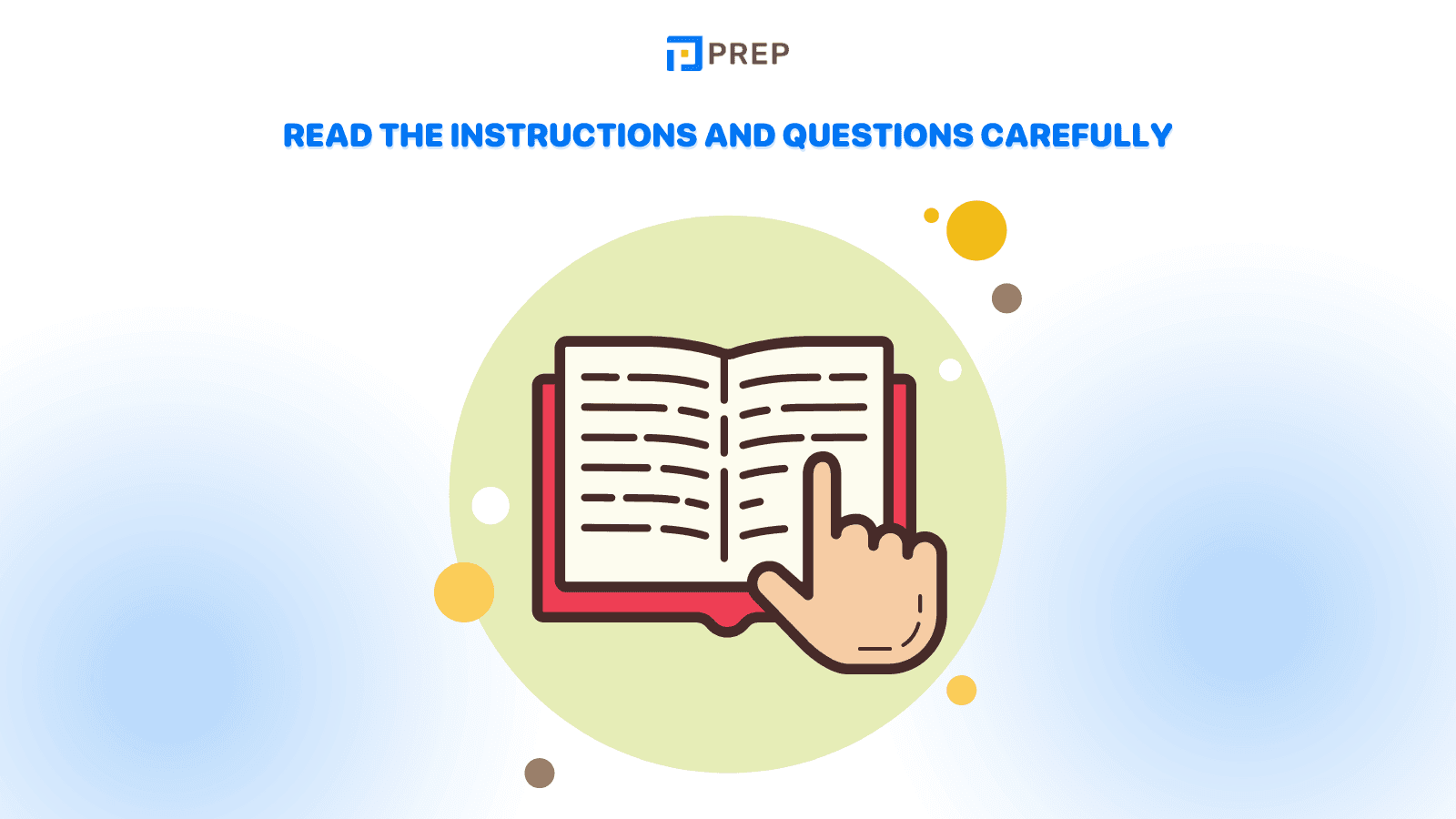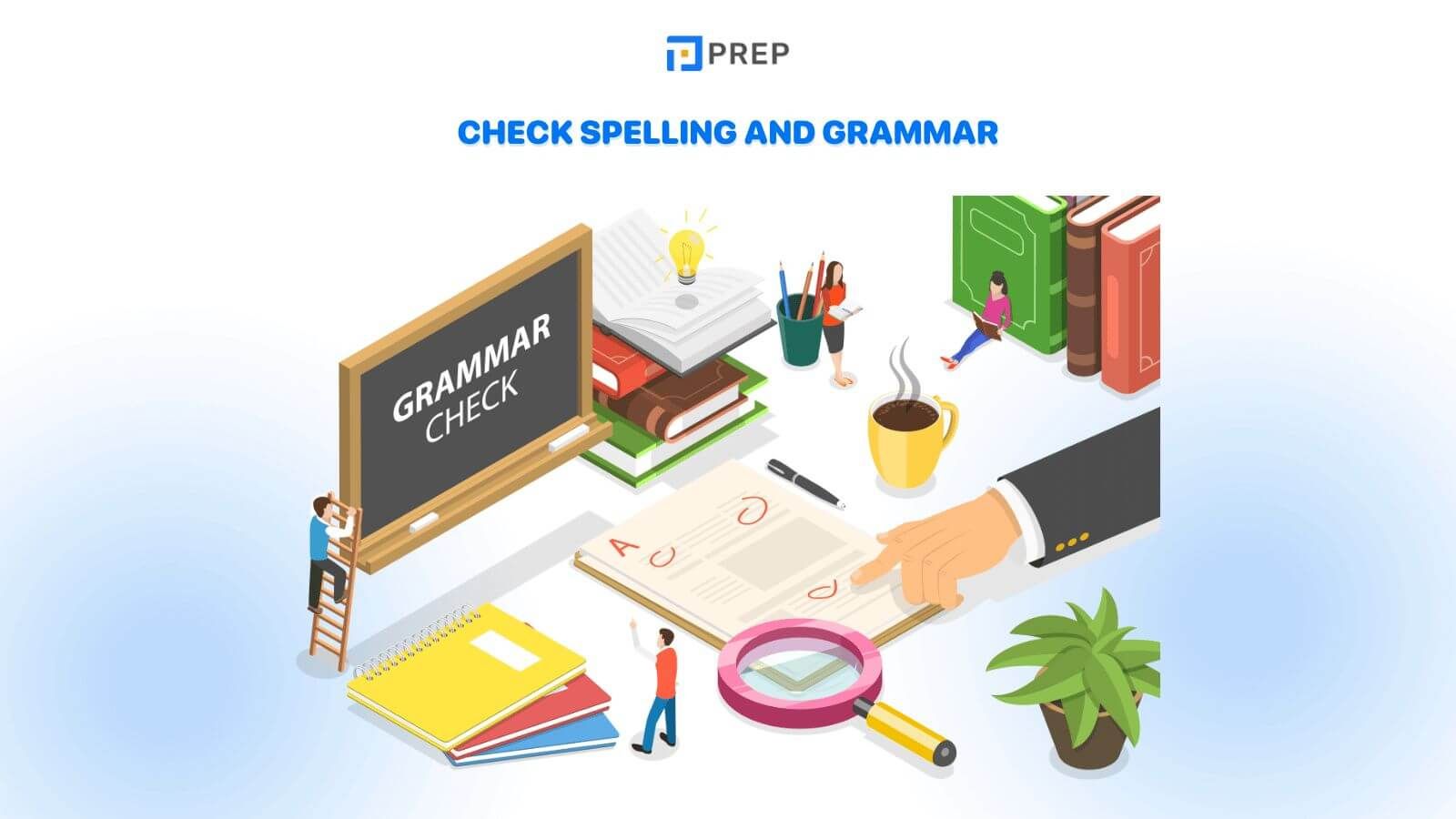IELTS Listening Part 1 Tips and Tricks for Higher Scores
Mastering IELTS Listening Part 1 is key to achieving a higher band score. This guide highlights effective tips and tricks, proven strategies for each question type, and common mistakes to avoid, helping you improve accuracy, build confidence, and perform better on test day.

I. Essential IELTS Listening Part 1 Tips and Tricks
IELTS Listening Part 1 is often considered the easiest section of the listening test, as it typically features a simple conversation between two speakers in an everyday social context. However, many test-takers still lose valuable marks due to small, avoidable mistakes. In this section, we will explore essential tips and tricks to help you maximize your score and approach Listening Part 1 with greater confidence and accuracy.
-
Part 1 usually involves a dialogue related to booking a service, making inquiries, or providing personal or logistical details.
-
The most common task format here is form completion, where you must fill in missing information such as names, dates, numbers, prices, addresses, or times.
-
You are expected to write one to three words and/or a number for each gap, following the instructions carefully.
Understanding this context is vital—because it’s conversational, the challenge often lies in tracking the correct information rather than in understanding complex ideas.
A clear understanding of how this section fits into the overall test structure can be developed further by reviewing IELTS Listening question types.
Tip 1 – Use the Preview Time Effectively
Before the recording starts, you will be given time to read the instructions and study the questions. Use this time wisely to:
-
Predict the type of word needed: (e.g., a number, a noun, a name)
-
Highlight key words in each question
-
Pay attention to word limits in the instructions (e.g., “No more than two words and/or a number”)
Anticipating what you will hear will help your brain focus on target information during the audio.

Tip 2 – Master Paraphrasing and Keyword Recognition
The questions are usually not worded exactly the same as in the audio. Instead, you will hear synonyms or paraphrased versions. For example, the question might say “cost” and the speaker might say “it’s quite cheap – only $12 per ticket.”
Practice identifying common paraphrases and build your ability to link spoken phrases with what you see on the paper. This skill is essential to avoid getting distracted by irrelevant words that might appear similar but don’t actually answer the question.
Strengthening this ability through targeted practice, such as the techniques explained in paraphrasing in IELTS, can improve accuracy across both Listening and Reading tasks.
Tip 3 – Avoid Common Distractions in Conversations
Part 1 recordings often include distractors, where the speaker changes their mind or corrects an earlier statement. For instance:
-
“That’s right — it’s Tuesday, no—sorry, it should be Thursday.”
These corrections are designed to test your focus. To avoid being misled:
-
Don't write your answer too early
-
Listen until the speaker finishes the sentence
-
Be alert to corrections, hesitations, or clarifications
Tip 4 – Improve Spelling and Number Accuracy
Even if you hear the correct information, you will lose marks for misspelling words or writing incorrect digits. Common mistakes include:
-
Confusing “fifteen” and “fifty”
-
Misspelling common words like “address” or “February”
Practice listening to words and numbers intentionally. Review common spelling traps and train yourself to write quickly yet accurately during listening.

Tip 5 – Train with Multi-Accent Audio Sources
IELTS Listening includes British, Australian, New Zealand, and sometimes North American accents. In Part 1, you are likely to hear British or Australian speakers, especially in service-related conversations. Train your ear to recognize various pronunciation styles by practicing with diverse accent sources.
Good options include:
-
Official IELTS practice materials
-
Podcasts with UK/AU speakers
-
YouTube videos that focus on customer service conversations
By diversifying your listening practice, you reduce confusion when encountering unfamiliar intonation or phrasing in the actual exam.
II. IELTS Listening Part 1 Tips by Question Type
In IELTS Listening Part 1, the most common task types include form completion, short-answer questions, and sometimes simple note completion or matching tasks. Each of these requires a slightly different approach to ensure you capture the correct information accurately and within the time limit. Below are targeted strategies for each type.
Form Completion Strategies
Form completion is the most frequent question type in Part 1. You will be asked to fill in missing information from a form, typically related to booking, registration, service inquiries, or personal details.
Tips for success:
-
Pay close attention to word limits and format expectations (e.g., capitalizing names, precise spelling).
-
Use the preview time to identify expected content—is the blank asking for a phone number, a date, a name, or an address?
-
Listen carefully for spelling of unfamiliar names or addresses. Examiners often spell them out in the audio.
-
Be prepared for corrections or repeated information as speakers sometimes change their mind.
Example:
Blank: Phone number: ___________
Audio: “You can reach me at 07783 925 – sorry, actually 995, 448.”
Make sure to write the final version only.
Tips for Matching and Short-Answer Questions
In rare cases, Part 1 may include simple matching tasks (e.g., matching names to facilities) or short-answer questions (e.g., “What time does the event begin?”).
Tips for short answers:
-
Keep your answer short and simple—do not include unnecessary words.
-
If a time or date is required, write clearly and check for correct format.
-
Always obey the “NO MORE THAN X WORDS AND/OR A NUMBER” rule.
Tips for matching tasks:
-
Use your preview time to memorize or annotate key features.
-
Focus on how the speakers refer to people or categories when assigning details.
-
Be aware of synonyms or descriptive phrases. They rarely use the exact words on the test paper.
Example:
Question: What time does the course start?
Audio: “We usually begin at 7, but for this one we’re starting earlier—at 6:30 sharp.”
Answer: 6:30 (not “at 6:30,” as that would exceed the word limit if the instruction allows “one number only”)
Techniques for Table and Note Completion
Though more common in later parts of the test, simple tables and note-style formats can appear in Part 1. These often summarize booking details or compare options (e.g., times, prices, service types).
Tips to handle them:
-
Follow the flow of the table or notes horizontally, not just top-down.
-
Expect data to be presented verbally but not necessarily in the exact order shown on the paper.
-
Use logic to predict possible answers before the recording begins.
-
Circle units (e.g., £, km, minutes) in advance to keep them in mind as you listen.
Key skill: In note or table formats, listening for contrast and clarification is essential. Speakers may compare two options before selecting one.
Example:
Audio: “The basic package is £60, but I think I’ll go for the premium—it’s £85 and includes dinner.”
Answer: £85 (not £60)

III. Common Mistakes in IELTS Listening Part 1
While IELTS Listening Part 1 is designed to be the most straightforward section, many candidates lose easy marks due to small, preventable mistakes. By being aware of these common errors, you can avoid traps that often affect even skilled listeners. Let’s explore the mistakes that frequently lead to lost points and how to fix them.
Not Reading the Instructions Carefully
One of the most frequent and costly mistakes is ignoring or misinterpreting the task instructions.
Examples of what to look for:
-
Word limits, such as NO MORE THAN TWO WORDS AND/OR A NUMBER
-
Requirements about spelling and format
-
Whether or not a number or symbol is allowed (e.g., phone numbers, dates)
How to fix it:
-
Always read the instructions for every new section, even if the task looks familiar.
-
Underline or mentally note key instructions before the recording begins.
Writing the Answer Too Early
Part 1 recordings often include distraction techniques, such as speakers changing their minds or correcting themselves.
Example:
"The meeting is on Wednesday... Actually, no—it’s been moved to Friday at 10 AM."
In a rush to answer, some candidates write "Wednesday" and miss the updated information.
How to fix it:
-
Wait until the sentence finishes before writing your answer.
-
Listen for key signal phrases like "sorry," "actually," "I meant"—these often indicate a correction.
Weak Prediction or Expectation Skills
Underusing the preview time means you’ll be less prepared for what is coming in the recording.
Caused by:
-
Failing to scan question structure
-
Not predicting what type of word is needed (name, number, place, date, etc.)
Consequences:
-
Slower response time
-
Higher risk of being confused or distracted mid-sentence
How to fix it:
-
Use the preview time actively: underline key words, think of synonyms, and determine word type needed.
-
Practice this skill in training sessions to make it automatic under exam pressure.
Ignoring Spelling Accuracy and Word Forms
Even if you hear the right word, misspelling it will result in a wrong answer.
Common error types:
-
Confusing similar-sounding letters or digits (e.g., “b” vs “v”, “15” vs “50”)
-
Writing the correct word in the wrong form (e.g., singular instead of plural)
-
Capitalization errors for proper nouns
How to fix it:
-
Review frequently misspelled words
-
Practice listening exercises that focus on numbers, names, and addresses
-
Check your answer sheet (if allowed time) to correct small grammar or spelling issues
By eliminating these common mistakes, you can protect yourself from losing points on what should be a high-scoring part of the IELTS Listening test. Awareness, technique, and practice are the keys to success.
Above is the full article by PREP on how to apply effective tips and tricks for IELTS Listening Part 1. We hope this guide helps you recognize common mistakes, apply targeted strategies with confidence, and feel more prepared when tackling everyday listening conversations in the exam. Keep exploring with PREP to strengthen your listening skills, step by step.

Hi I'm Chloe, and I am currently serving as an Product Content Administrator at Prep Education. With over five years of experience in independent online IELTS study and exam preparation, I am confident in my ability to support learners in achieving their highest possible scores.
Comment
Premium content
View allPersonalized roadmap
Most read












